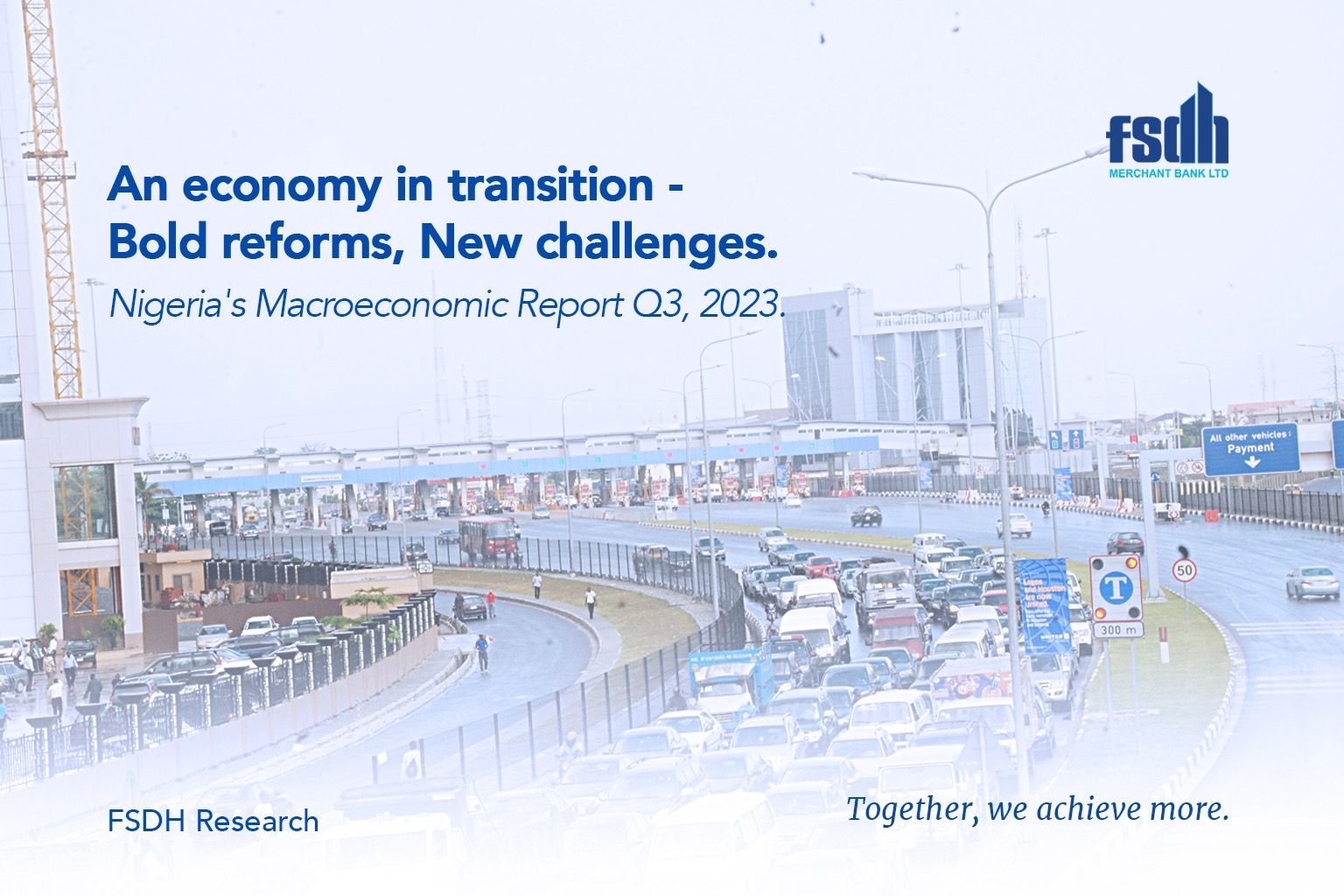A new administration means the introduction of twists and turns. Nigeria stands at a crucial juncture in its journey towards prosperity. With the macroeconomic outlook for Q3 2023, it is evident that the nation’s path to growth and stability is paved with both challenges and opportunities. We have put together this summary based on our research analysts’ report for Q3-2023.
In the second quarter of 2023, Nigeria’s real GDP registered a modest growth of 2.5%. This growth, while positive, remains fragile and was largely driven by the non-oil sector. In tandem with this, inflation rates have surged, soaring to 25.8% in August 2023, directly attributed to the fuel subsidy removal.
Why did this happen?
Since the removal of this subsidy, inflation has inched upwards by 3.4 percentage points, with food inflation accelerating even faster to reach 29.3% in August. The future outlook indicates that further increases in petrol and diesel prices, along with exchange rate fluctuations, are likely to exert additional upward pressure on inflation in the months to come.
Foreign Exchange Reforms: A Glimpse into the Future
Since President Tinubu’s assumption of office, the government has displayed a commendable commitment to implementing foreign exchange reforms. Several significant policy shifts have taken place:
Removal of FX Peg: The government replaced the static FX peg with a market-reflective rate for government transactions.
Willing Buyer, Willing Seller Framework: The Central Bank of Nigeria (CBN) reintroduced this framework while maintaining the rules of the Investors and Exporters (I&E) window.
Operational Guidelines for BDCs: On August 17, 2023, the CBN released operational guidelines for Bureau de Change (BDCs), fixing the spread on forex transactions.
Analyst Views on FX and Reserves
Despite these reforms, forex inflows into Nigeria are trailing, and the demand for foreign currency remains high, putting pressure on the exchange rate. Limited access to FX in the official market has incentivized transactions in the black market.
Nevertheless, the removal of the peg on the official exchange rate signals a commitment to exchange rate reforms. To win back investor confidence, the government must focus on curtailing oil theft and providing a clear roadmap to improve FX inflows and management.
Fiscal Policy and Its Impact
The removal of fuel subsidy and FX reforms have significantly bolstered government finances. Inflows into the Federation Account Allocation Committee (FAAC) account have surged, potentially improving fiscal deficit and debt sustainability ratios. However, a return of subsidies could raise concerns among private sector players and potential investors in the oil and gas industry.
The government’s effectiveness in utilizing these fiscal gains is critical. Prioritizing capital projects, education, and healthcare sectors in the budget, along with addressing the high cost of governance, will be crucial steps for Nigeria’s sustainable growth.
Key Initiatives and Policies
Since June 2023, the government has taken noteworthy initiatives, such as suspending excise taxes, removing fuel subsidies, and reducing the Cash Reserve Ratio (CRR) for merchant banks. These steps signify a concerted effort to boost the economy.
Charting a Course for Progress
Beyond FX reforms, Nigeria’s government must focus on rapid expansion of the private sector, improve efficiency, enhance institutional coordination, and implement social support measures. These actions will steer the nation toward a brighter economic future.
Conclusion
As Nigeria navigates through economic challenges, the road to prosperity lies in implementing thoughtful policies, fostering private sector growth, enhancing efficiency, and ensuring social inclusion. The path may be challenging, but with strategic planning and steadfast commitment, the future holds great promise for Nigeria’s economy. These strategies, meticulously implemented, promise a future where economic empowerment is synonymous with national progress.
For a comprehensive analysis of Q3 2023 and to explore the full report, click here.


